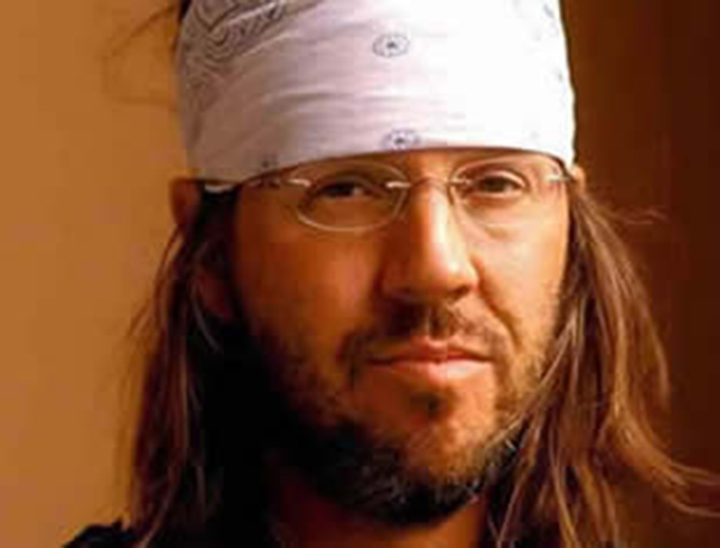When Zeph Webster’s high school jazz band visited Illinois State University to perform a couple years ago, he snuck away on a secret mission: to see inside Stevenson Hall.
That’s where one of his favorite authors, the late David Foster Wallace, taught in the 1990s. Webster became an admirer first through online videos, then by reading Wallace’s acclaimed book Infinite Jest. Wallace—the way he wrote, the way he carried himself in interviews—touched Webster in a really personal way.
 This summer Webster, now a sophomore English studies major at Illinois State, is helping organize the third annual International David Foster Wallace Conference on July 28–30. Just a few years after his clandestine trip to Stevenson, Webster will get face time with the top Wallace scholars in the world, as well as creative writers and literature faculty.
This summer Webster, now a sophomore English studies major at Illinois State, is helping organize the third annual International David Foster Wallace Conference on July 28–30. Just a few years after his clandestine trip to Stevenson, Webster will get face time with the top Wallace scholars in the world, as well as creative writers and literature faculty.
“I think it’s really fantastic. For me it’s a great opportunity that this school has this international conference about one of the literary giants of the late 20th century,” said Webster. “It’s a real point of pride for the University to have that connection to Wallace.”
Wallace joined Illinois State’s Department of English in 1993. Already an accomplished author, it was here he finished Infinite Jest, often called one of the greatest novels of the 20th century.
Through his books and essays, Wallace’s place in literature has grown since his death in 2008. He was portrayed by Jason Segel in 2015’s independent film The End of the Tour, which included scenes set at Illinois State University and at Wallace’s Bloomington home.

Two tickets from the End of the Tour film, which was shown at the Normal Theater during the 2015 conference.
The conference focuses on three areas: scholarship of Wallace’s work, scholarship of contemporary literature, and original creative writing. In addition to workshops, scholarly presentations, and a book fair, the conference will welcome Rhodes College English Professor Marshall Boswell for a keynote on the state of Wallace scholarship. Artist Jenni B. Baker will also showcase her erasure poetry—literally erasing words on an existing book’s page to create a new poem—using Infinite Jest, demonstrating one way that Wallace’s work still influences artists today.
Webster is on the planning committee for the conference, which was taken over this year by Department of English graduate students who already plan the Word’s Worth conference. Also new this year: the event will be held at Stevenson Hall, Wallace’s old stomping grounds.
So what’s so special about Wallace? Why is he so deserving of an entire conference in his name, or a movie, or the new DFW Society year-round student organization that Webster chairs?
“Wallace was the first to identify and write about cultural forces that had been at play for decades. He put them to language before many people were even aware of them,” said Ryan Edel, a Ph.D. candidate in English at Illinois State and chair of the Wallace conference. Infinite Jest specifically is “very prescient” in how its characters use emerging communications technology, he said.
“He shifted the landscape of literature,” Edel said. “His writing changed how we see writing.”
Scholarly sessions for the 2016 conference are still being finalized. Organizers pride themselves on accepting a broad range of proposals, which so far include a study of the deep theoretical implications of Infinite Jest, and a discussion about how contemporary fiction is reflecting society.
In 2014 when the conference launched, sessions included “Bob Hope and the White Whale: Destructive Monomania in Infinite Jest and Moby-Dick,” and “The Poetry of the Tax Code as the Silence of the Tornado: Metaphysics and the Unfolding of Being in David Foster Wallace’s The Pale King.”
The top scholarship will be compiled into official proceedings that will again be curated by original Wallace conference founder Jane Carman.
Registration is open for the third annual International David Foster Wallace Conference.
Ryan Denham can be reached at rmdenha@IllinoisState.edu.


